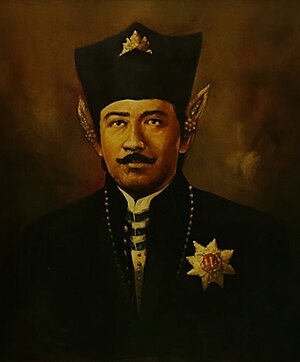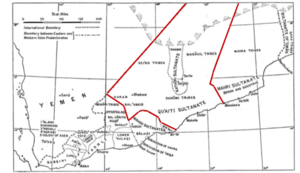Discover Your Roots
SIGN UPDiscover Your Roots
SIGN UPSultan is a male name of Persian origin, meaning "King." The name is derived from the Arabic abstract noun "sulṭān," which initially signified "strength," "authority," and "rulership." Historically, it was used as the title for certain rulers who claimed almost full sovereignty without dependence on any higher ruler. The term is distinct from "king" and is specifically used in Muslim countries, where it carries religious significance. Notable examples include Brunei, Malaysia, and Oman. The title has been gradually replaced by "king" in contemporary hereditary rulers who wish to emphasize their secular authority under the rule of law. The name Sultan carries a strong historical and religious connotation, reflecting power, authority, and sovereignty.

Sultan bin Salman Al Saud, born on 27 June 1956, is a prominent Saudi prince and former Royal Saudi Air Force pilot, known for his notable achievement as the first member of a royal family, Arab, and Muslim to fly in space. He was a payload specialist on the STS-51-G Space Shuttle mission, making him the youngest person to fly on a space shuttle at the age of 28. Sultan bin Salman is currently the chairman of the Board of Directors of the Saudi Space Commission, appointed with the rank of minister in December 2018. He has also held significant positions such as the president and chairman of the Saudi Commission for Tourism and National Heritage and is a member of the International Executive Committee of the Association of Space Explorers. Sultan bin Salman is an accomplished author, having written and edited several books on architectural heritage and the first Arab mission to space.Apart from his professional endeavors, Sultan bin Salman is a family man, married to Princess Haifa, with whom he has three children. With a distinguished career in aviation, space exploration, and public service, Sultan bin Salman Al Saud continues to be a prominent figure in Saudi Arabia's cultural, scientific, and governmental spheres.

Sultan Agung, also known as Sultan Agung Adi Prabu Anyakrakusuma, was the influential third Sultan of Mataram in Central Java from 1613 to 1645. His reign was marked by impressive military conquests and the expansion and consolidation of his kingdom. Renowned for his prowess as a skilled soldier, Sultan Agung is celebrated as a Javanese ruler who fiercely resisted the incursions of the Dutch East India Company. His legacy is richly documented in literature, which intertwines myth and magic with verifiable historical events. Sultan Agung's significant contributions to Indonesia's history and culture led to his declaration as a National Hero of Indonesia in 1975.Sultan Agung's early reign was characterized by the construction of the Karta Palace and strategic administrative changes in Mataram. He embarked on territorial conquests, successfully capturing various cities and regions, including Surabaya, Malang, Wirasaba, Lasem, Pasuruan, and Tuban. Despite facing rebellions and challenges, Sultan Agung's rule solidified Mataram's dominance over most of Java by 1625. However, his attempts to conquer Batavia and drive out the Dutch were unsuccessful, and he faced continued rebellions in the subsequent years.Sultan Agung's enduring impact on Indonesian history and his significant military and cultural contributions have firmly established his position as a revered figure in the nation's historical narrative.

Sultan Rashad McCullough, born on February 12, 1980, is a former professional American football running back who made his mark in both the NFL and the CFL. Renowned for his exceptional speed, McCullough excelled in football and track during his college years, clinching the 1999 Pac-10 championship in the 100-meter dash and earning the distinction of being the fastest player in USC Trojans history. His athletic prowess runs in the family, as his brother Saladin McCullough also pursued a career in professional football.Hailing from Pasadena, California, McCullough's talent was evident during his time at John Muir High School, where he emerged as one of the state's top sprinters. Despite facing a setback due to an injury during the 100-meter final, his team's impressive performance in the 4x100 relay still holds the meet record at the prestigious Arcadia Invitational.McCullough continued to showcase his athleticism at the University of Southern California, where he played college football. In the professional arena, he donned the jersey for the Washington Redskins and also had a stint with the Montreal Alouettes in the CFL. His brief yet impactful appearance with the Redskins saw him make a notable contribution, carrying the ball for 9 yards and catching three passes for 13 yards in a single game. Throughout his career, Sultan Rashad McCullough left an indelible mark on the football landscape, captivating

Sultan Abdullah bin Omar Al-Quaiti holds a significant place in history as the founder of the Qu'aiti Sultanate in Hadhramaut, Yemen. His legacy is deeply rooted in the establishment of this influential sultanate, which has had a lasting impact on the region. His leadership and vision have been instrumental in shaping the history and culture of Yemen. Sultan Abdullah bin Omar Al-Quaiti's contributions have been well-documented and continue to be studied and celebrated by historians and scholars. His enduring influence on the Hadhramaut region and beyond is a testament to his enduring legacy as a prominent historical figure.

Sultan Mubarak Al-Dawoodi, born on 16 March 1985 in Bisha, is a renowned Saudi Arabian discus thrower. He holds a personal best of 65.52 meters, achieved in Biała Podlaska in June 2016. Al-Dawoodi has represented Saudi Arabia at the Summer Olympics three times (2008, 2012, and 2016). Despite his notable achievements, he faced a setback when he tested positive for norandrosterone in April 2009, resulting in a two-year ban from competing in sports. The ban was lifted on 5 June 2011. Although his career faced this challenge, Al-Dawoodi remains a prominent figure in the world of discus throwing. His dedication and accomplishments have solidified his legacy in the sport. For more information on his athletic journey, visit Sultan Al-Dawoodi at World Athletics.
All images displayed on this page are sourced from Wikipedia or Wikimedia Commons.We use these images under their respective Creative Commons or public domain licenses. Wherever applicable, author attributions and license information are provided. If you believe an image is used incorrectly or outside its license terms, please contact us so that we can review and correct the issue.